Troop review. National Library of Spain.
President at War: 1936-1939
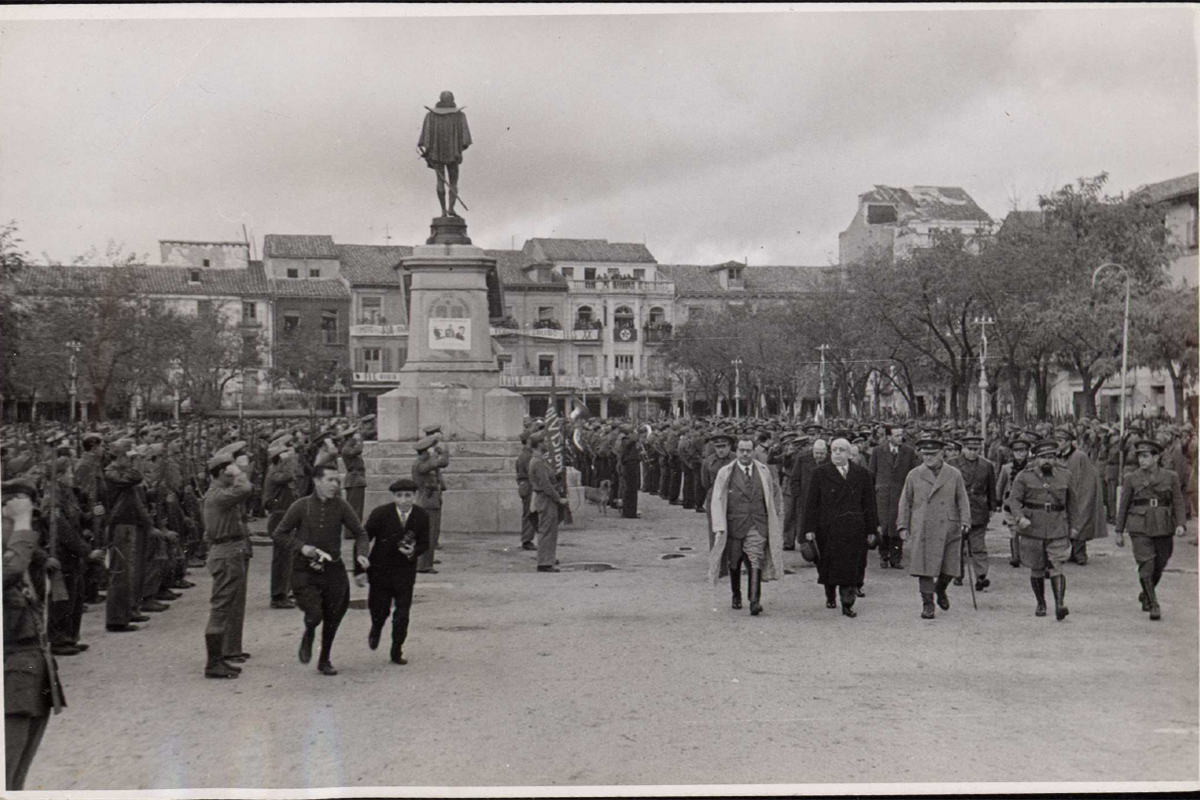
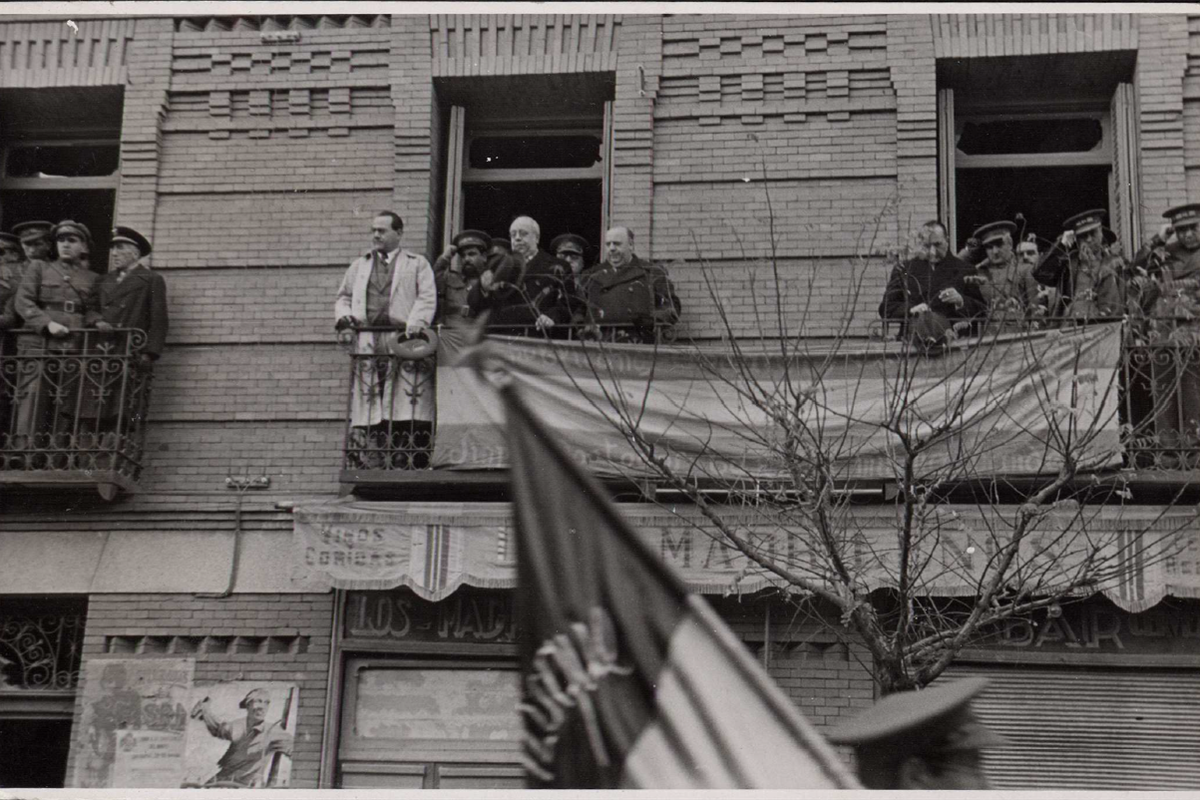
Troop Parade. National Library of Spain.
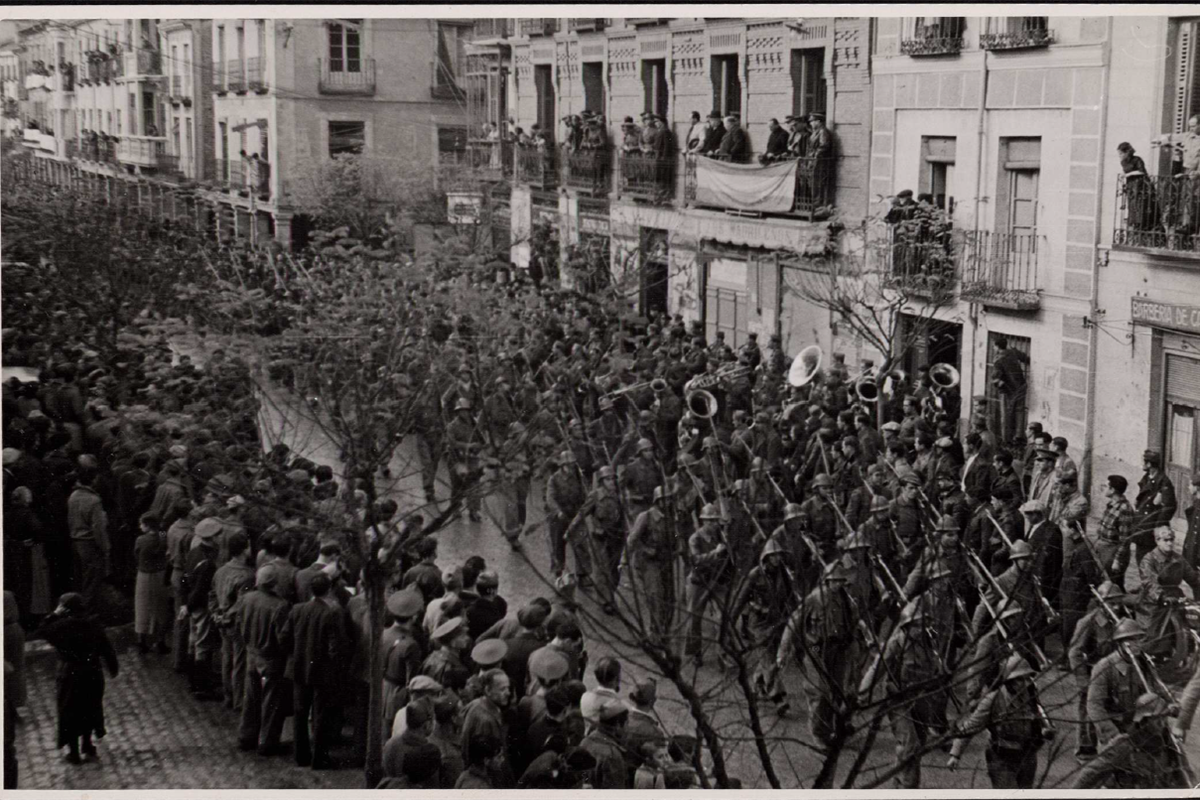
Troop Parade. National Library of Spain.
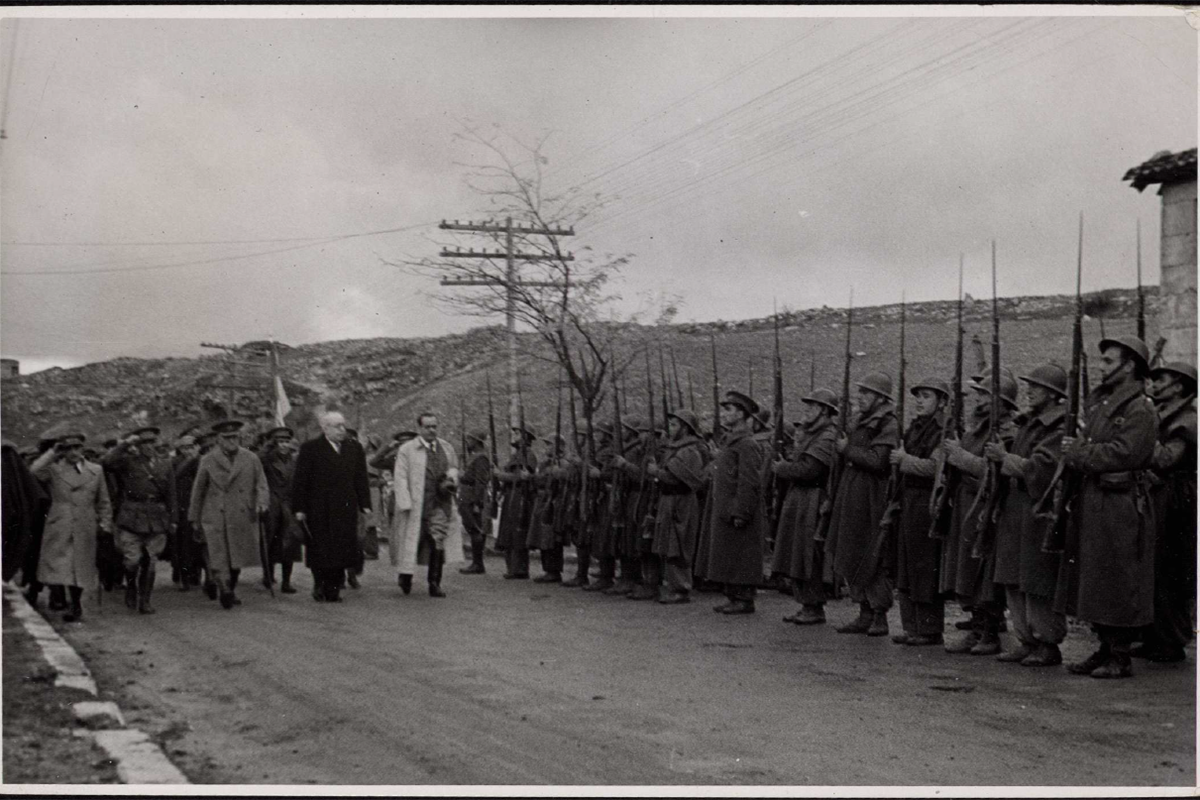
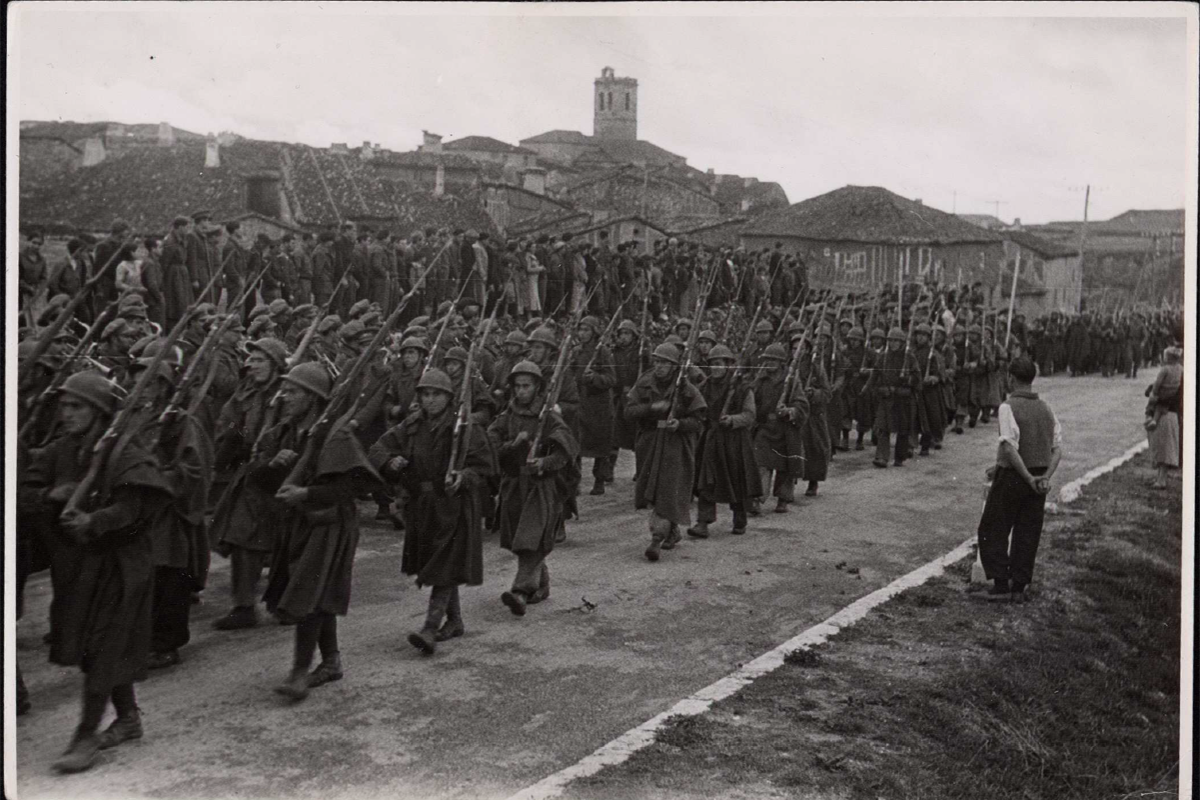
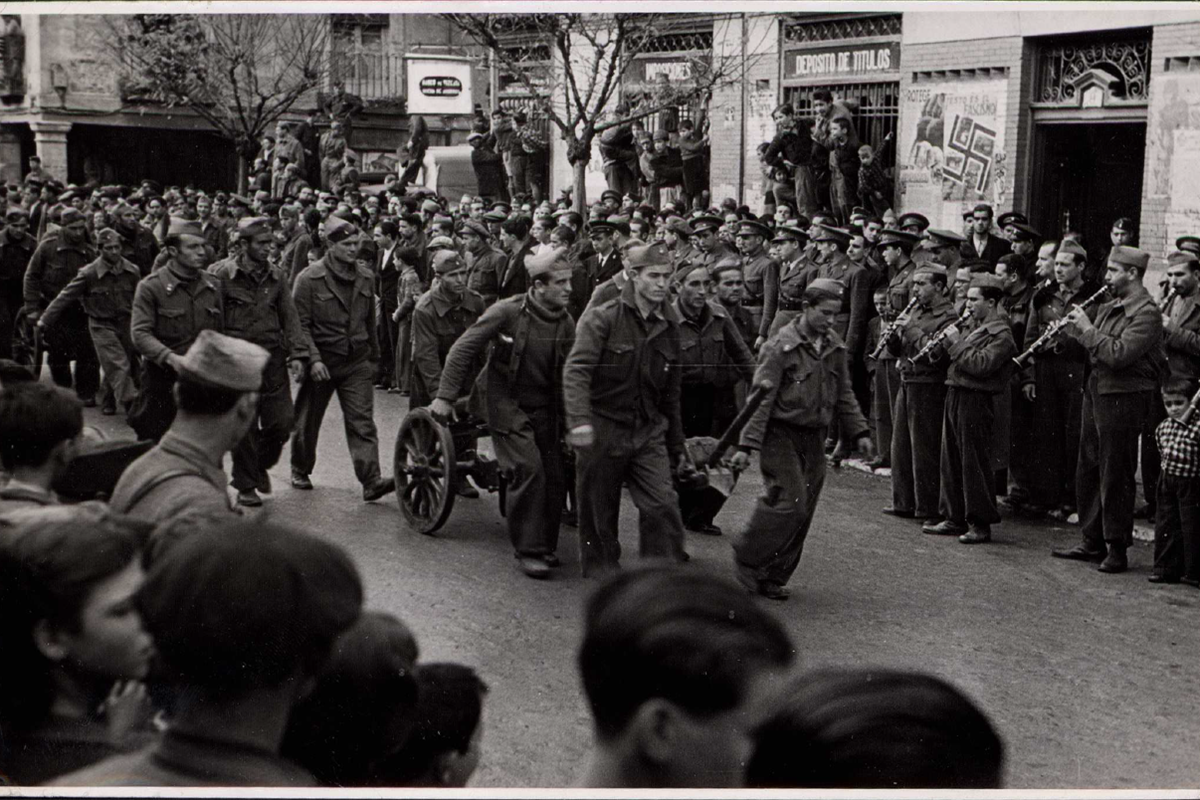
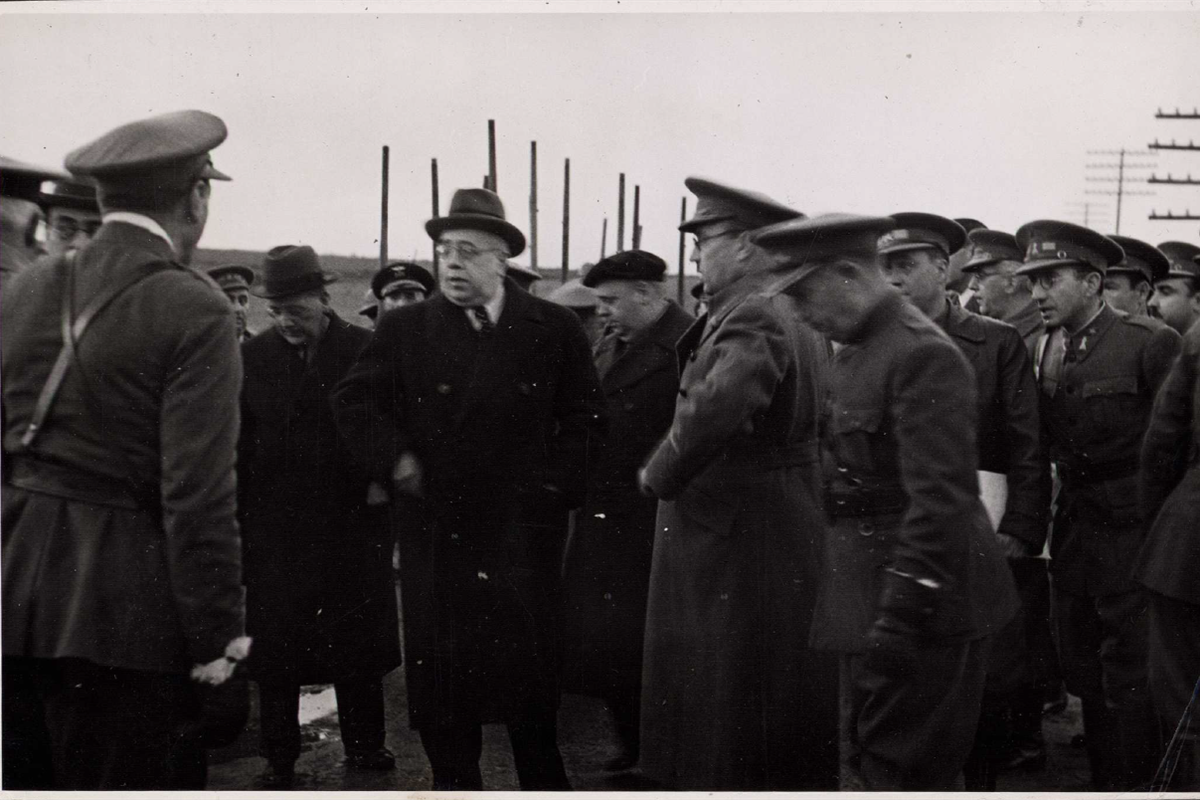
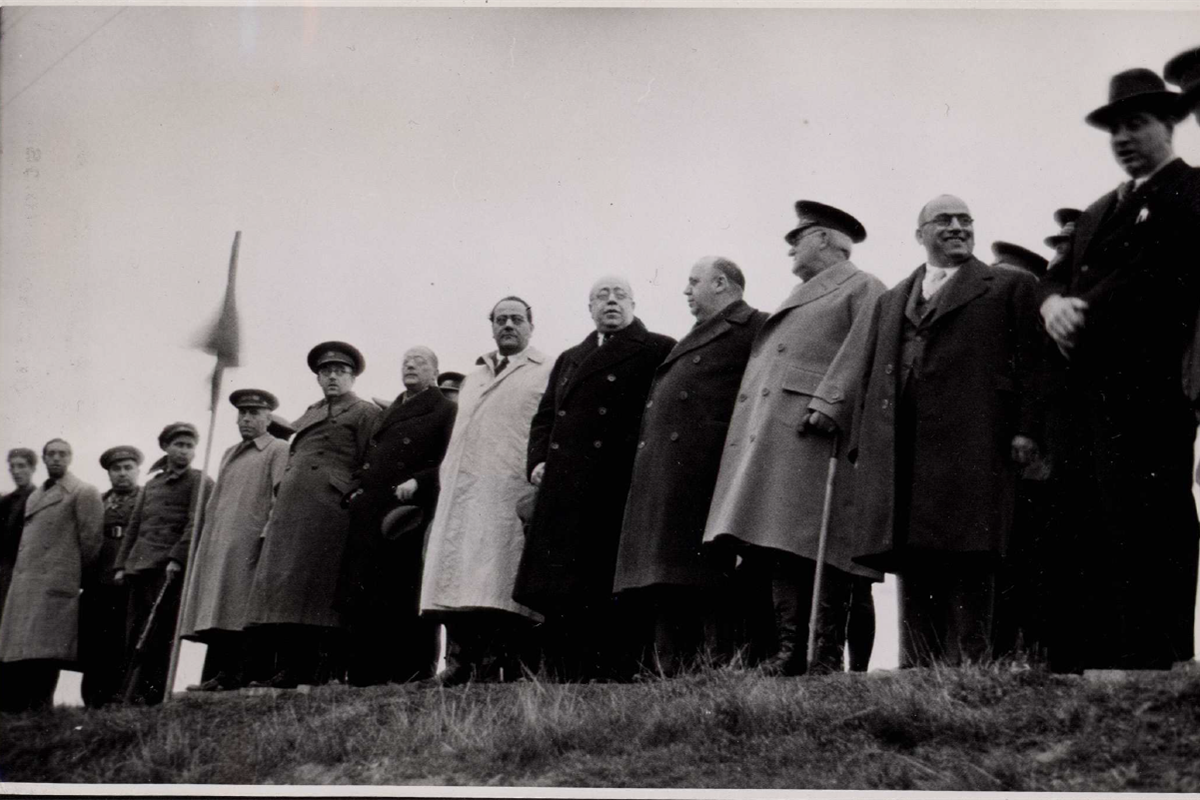
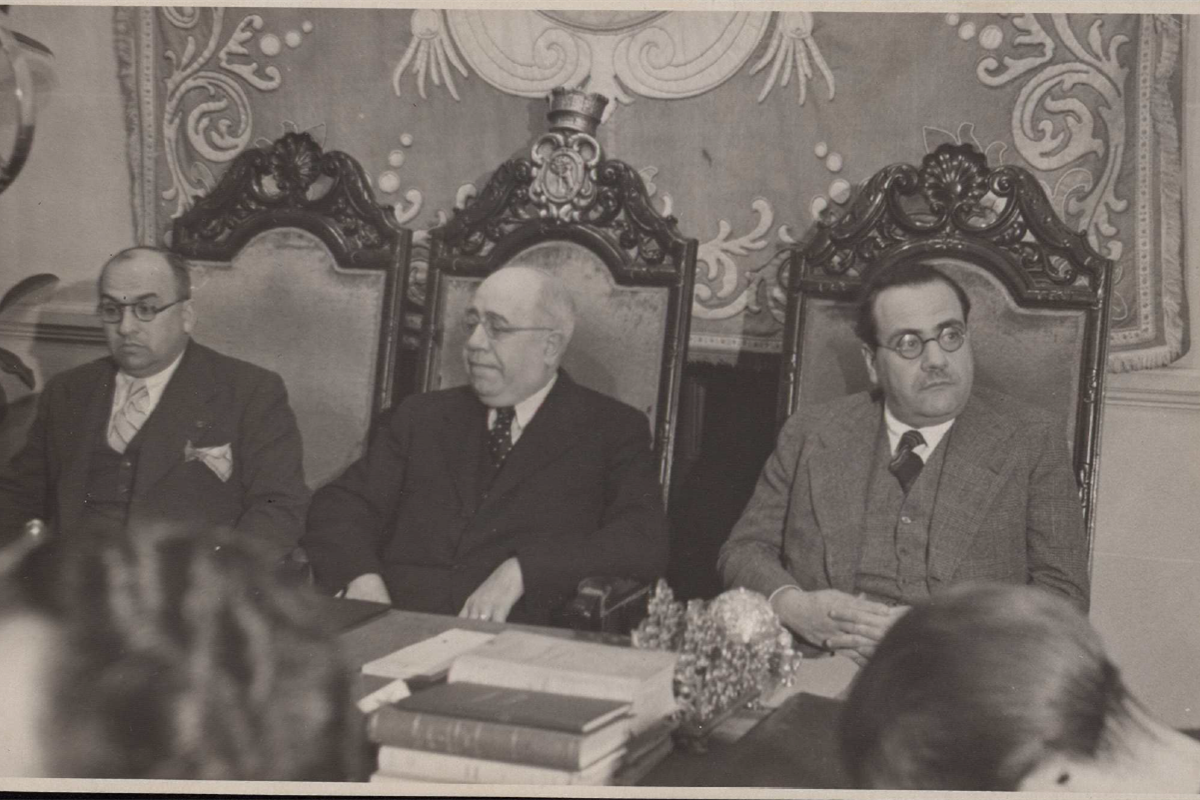
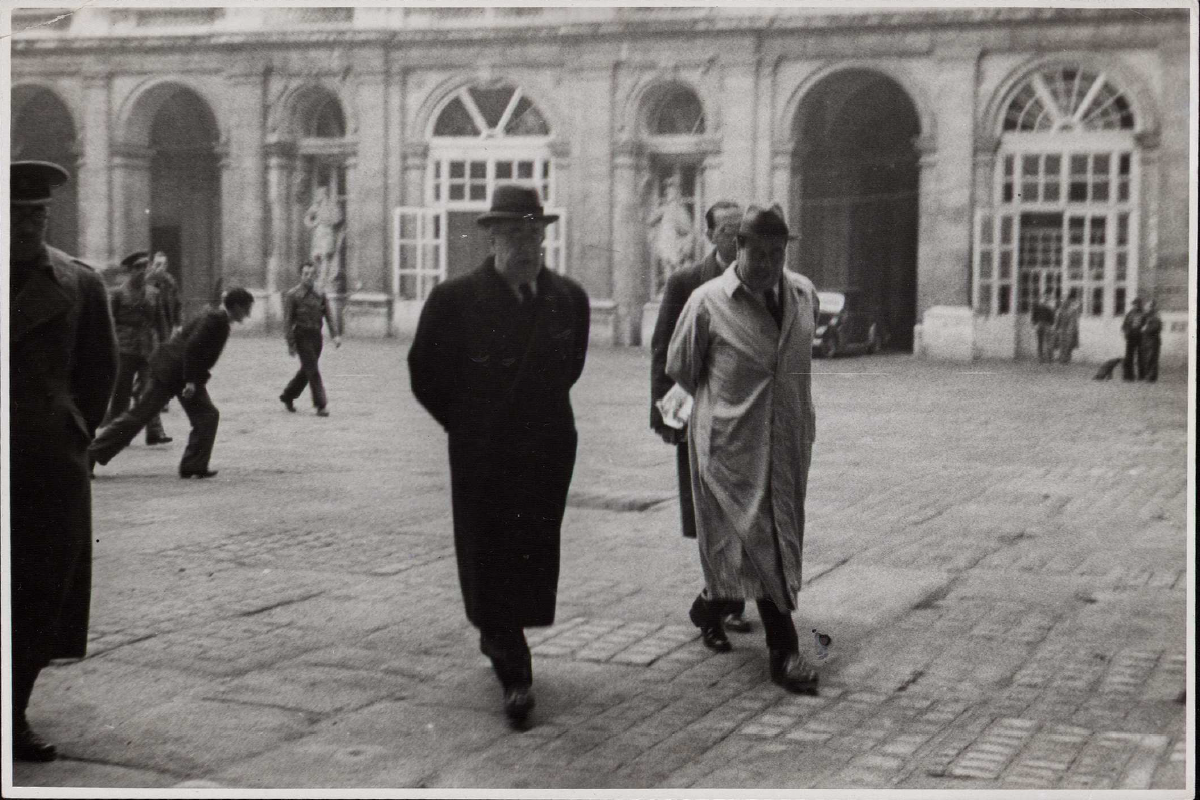
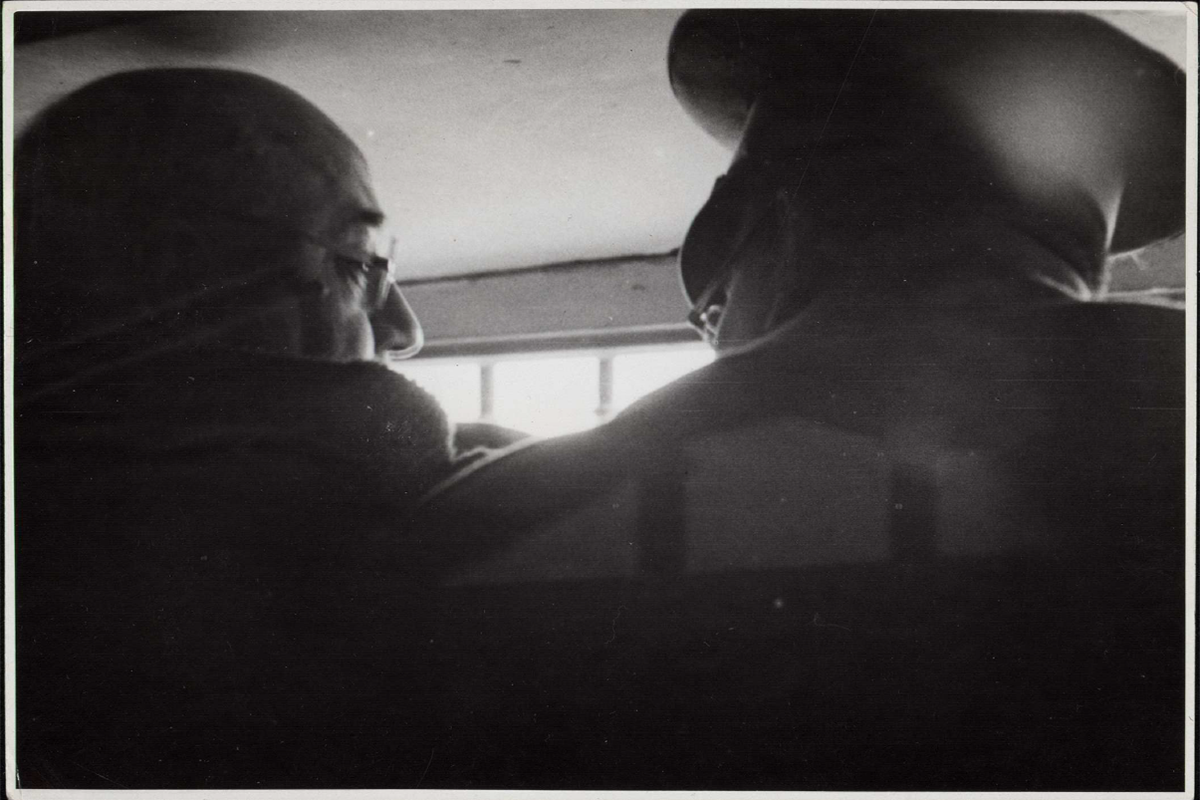
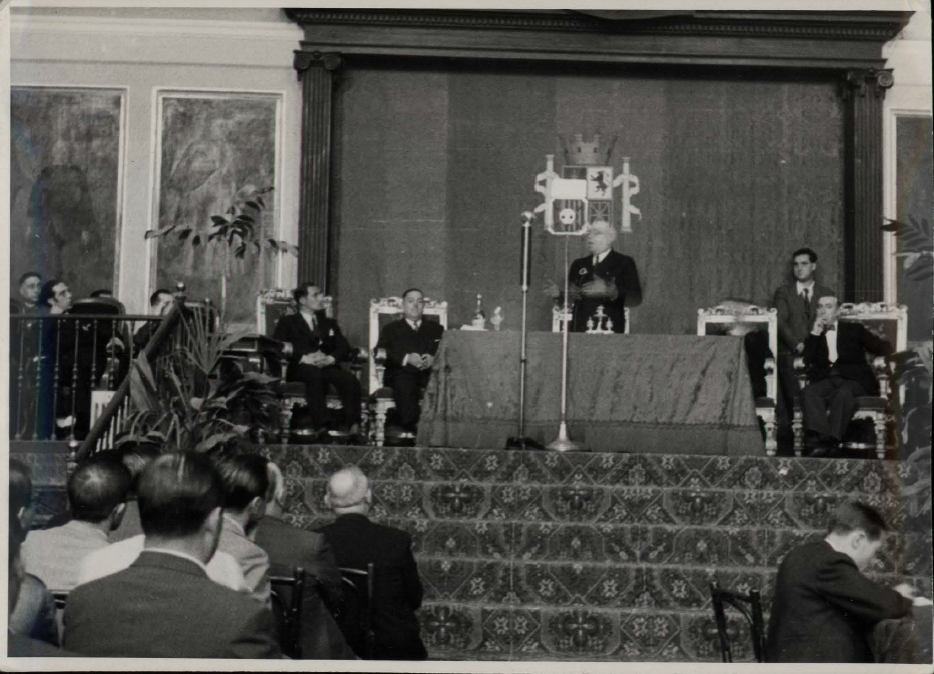
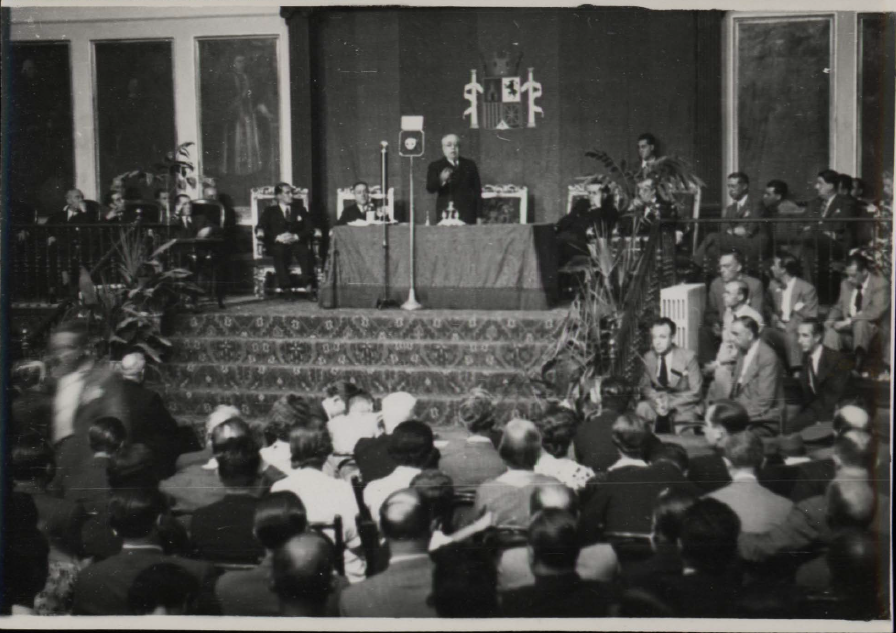
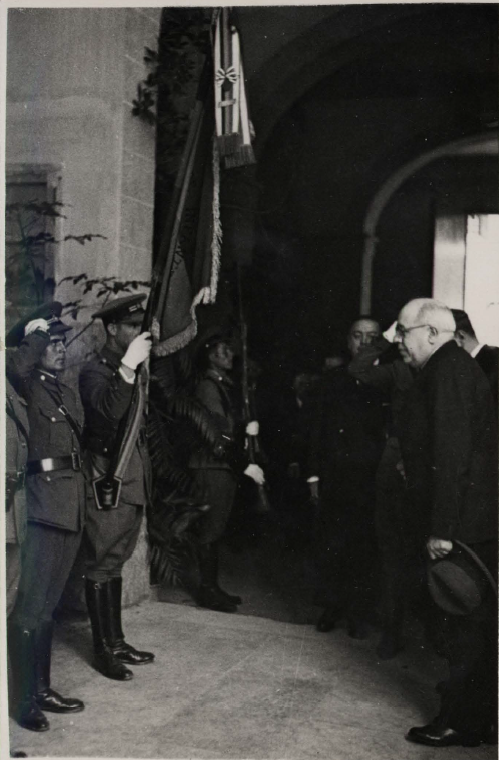
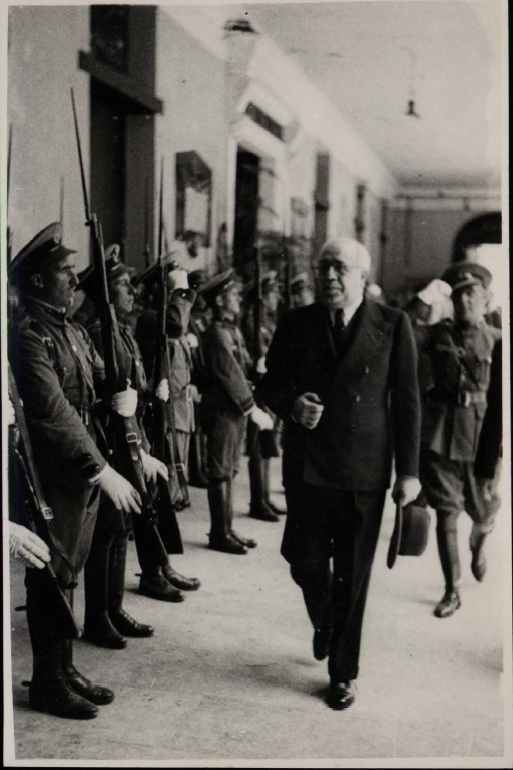
On February 16, 1936, the left-wing coalition grouped in the Popular Front won the elections. On February 19, Azaña took over the government and on May 10, he was elected President of the Republic.
In July 1936, the African army took a stand against the Government of the Republic. The coup d’état fails and degenerates into a confrontation between those loyal to the Republic and the rebelled military.
The Presidency of the Republic leaves the capital in mid-October and settles in Barcelona. Azaña experiences the confrontation between the anarchists and the Generalitat of Catalonia, the "events of May 1937", which give rise to his work La velada en Benicarló.
Azaña moves to Valencia and pronounces in his City Hall the first of his last four great speeches (January 21, 1937); the other three will take place in July 1937 (University of Valencia); in November 1937 at the City Hall of Madrid, a city that he visits for the last time, as well as his hometown, Alcalá de Henares; and, finally, the one that pronounces on July 18, 1938 at the City Hall of Barcelona that ends by asking: "Peace, Mercy and Forgiveness."
The war, which will ravage Spain for three years, opens the first page of the confrontation with totalitarianism that leads to World War II.
Faced with the ineffectiveness of the League of Nations and the lack of support for the Republic by the Western powers, Azaña realizes that he is going to lose himself and allocates his efforts to achieve peace in the best possible conditions, through international mediation.
Words of Azaña
Interview with American journalist John Gunther:
I am an intellectual, a democrat, and a bourgeois. (I am an intellectual, a democrat and a bourgeois.)
John Gunther, Inside Europe. New York, Harper & Brothers, 1938, p. 171.
About the Fatherland:
We are all children of the same sun and tributaries of the same stream. Therein lies the basis of nationality and the root of patriotic feeling, not in a dogma that excludes from nationality all those who do not profess it, whether it be a religious, political or economic dogma […]. We see in the homeland a freedom, merging in it not only the material elements of territory, physical energy or wealth, but all the moral heritage accumulated by the Spanish in twenty centuries.
Speech delivered at the Barcelona City Council on July 18, 1938.
On the coup d'état:
In these times of violence, when an unprecedented aggression has been unleashed against the legitimate Power of the Republic, I will not say one more word of violence […] I will only say words of encouragement and gratitude […]
Those who have promoted this coup d’etat against public power, this aggression against the law, this rise in arms, do not know the people whom they intend to subjugate […]
I must tell you, as the Government has already told you, what is our gratitude and our admiration for those who fight for the Republic […]
Help the government. Follow their directions. Join your efforts […]
Count on me.
Words of encouragement and gratitude to the defenders of the Republic. Radiated Address, July 23, 1936.
About the Spanish War:
What are the reasons for this invasion that we are experiencing? […] It is not about overthrowing the Republic. They don’t care much about Spain’s internal regime […] No. They come to look for the mines; they come to look for the first materials; they come to look for the ports, the Straits, the naval bases of the Atlantic and the Mediterranean. And all that, why? To give notice to the Western powers interested in maintaining this balance, in whose international political orbit, precisely, Spain has been rolling for many decades. To give the same thing to the English power as to the French power. That is what the invasion of Spain is for.
Speech at the paraninfo of the University of Valencia, July 18, 1937.
About the Society of Nations:
Meeting in Geneva. The usual comedy […]. The reason, the reason why Geneva, supporting British politics, disregards our lawsuit, is first and foremost Spain’s weakness. If instead of a dozen and a half ships of little power, we had eight or ten great battleships in the Mediterranean, the law of Spain would shine in Geneva as strongly as the Valencian sun […]
Notebook of La Pobleta, May 31, 1937.
About yourself:
No Spanish politician of these times has reasoned and demonstrated as much as I have, whether my theses look good or whether they look bad. Wanting to lead the country, in the part that touched me, with these two instruments: reasons and votes. I have been opposed to insults and rifles. In peace be said.
Notebook of La Pobleta, June 17, 1937. Conversation with Fernando de los Ríos.
About the rebels:
If a movement of force against the Republic triumphed, we would relapse into a traditional Spanish-style military and ecclesiastical dictatorship. No matter how many slogans they translate and how many niches they put on. Sables, casullas, military parades and tributes to the Virgen del Pilar. On that side, the country doesn’t give anything else.
Notebook of La Pobleta, October 6, 1937.
About reconciliation:
… and when the torch passes to other hands, to other men, to other generations, who will remember, if they ever feel that their blood is boiling and once again the Spanish genius is raging again with intolerance and with hatred and with the appetite for destruction, who think of the dead and listen to their lesson: that of those men, who have fallen drunk in the battle fighting magnanimously for a grandiose ideal and who now, sheltered in the motherland, have no hatred, no longer have grudges, and send us, with the flashes of their light, calm and remote like that of an eternal star, Peace, Mercy and Forgiveness.
Speech delivered at the Barcelona City Council, July 18, 1938.
About the war:
I thank and share, Mr. Ambassador, your votes for the pacification of Spain. A national peace, a Spanish peace, of free men, for a free people. The one that we have called, not always properly, a civil war, is extinguished on their mobiles, because the terrible experiment of these thirty months leads, even the most violent, to abjure a number of passionate errors, the cause of national discord. There remains the foreign invasion, the only food of war.
Reply to the speech of the Ambassador of the French Republic. Barcelona, December 31, 1938.